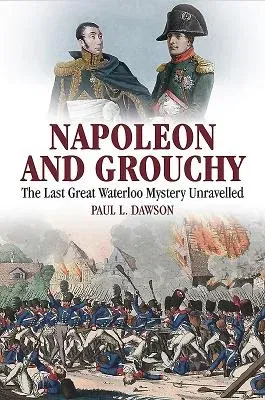One of the enduring controversies of the Waterloo campaign is the
conduct of Marshal Grouchy. Given command of a third of Napoleon's army
and told to keep the Prussians from joining forces with Wellington, he
failed to keep Wellington and Blücher apart with the result that
Napoleon was overwhelmed at Waterloo. Grouchy, though, was not defeated.
He kept his force together and retreated in good order back to France.
Many have accused Grouchy of intentionally holding back his men and not
marching to join Napoleon when the sound of the gunfire at Waterloo
could clearly be heard, and he has been widely blamed for Napoleon's
defeat.
Now, for the first time, Grouchy's conduct during the Waterloo campaign
is analyzed in fine detail, drawing principally on French sources not
previously available in English. The author, for example, answers
questions such as whether key orders did actually exist in 1815 or were
they later fabrications to make Grouchy the scapegoat for Napoleon's
failures? Did General Gérard really tell Grouchy to 'march to the sound
of the guns'? Why did Grouchy appear to move so slowly when speed was
essential?
This is a subject which is generally overlooked by British historians,
who tend to concentrate on the actions of Wellington and Napoleon, and
which French historians choose not to look at too closely for fear that
it might reflect badly upon their hero Napoleon.
Despite the mass of books written on Waterloo, this is a genuinely
unique contribution to this most famous campaign. This book is certain
to fuel debate and prompt historians to reconsider the events of June
1815.

